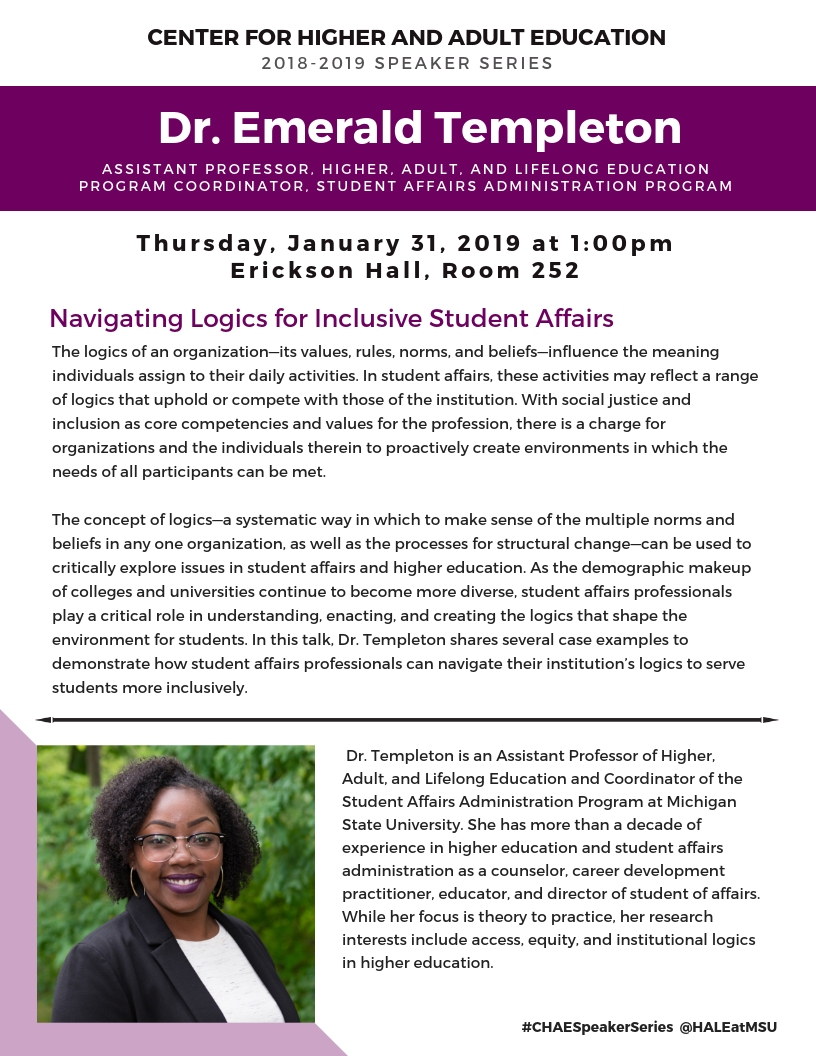
Navigating Logics for Inclusive Student Affairs
In this talk, Dr. Templeton shares several case examples to demonstrate how student affairs professionals can navigate their institution’s logics to serve students more inclusively.

The logics of an organization—its values, rules, norms, and beliefs—influence the meaning individuals assign to their daily activities. In student affairs, these activities may reflect a range of logics that uphold or compete with those of the institution. With social justice and inclusion as core competencies and values for the profession, there is a charge for organizations and the individuals therein to proactively create environments in which the needs of all participants can be met.
The concept of logics—a systematic way in which to make sense of the multiple norms and beliefs in any one organization, as well as the processes for structural change—can be used to critically explore issues in student affairs and higher education. As the demographic makeup of colleges and universities continue to become more diverse, student affairs professionals play a critical role in understanding, enacting, and creating the logics that shape the environment for students. In this talk, Dr. Templeton shares several case examples to demonstrate how student affairs professionals can navigate their institution’s logics to serve students more inclusively.



